#Donatistic
Explore tagged Tumblr posts
Note
But still, what actually is "rigorism"?
My best guess: Rigorism is the rejection of the decisions made by a given church's hierarchs in favour of an apparently or actually more conservative option (a lot of these groups have "old" or "ancient" in their names), manifesting as contempt towards the hierarchs in question or outright splitting from them. I'm not sure if this is an essential element, but they usually revolve around issues of practice that seem laughably trivial to outsiders; you'll see calendars pop up quite a bit here. Examples, with the issue they split over in brackets, include:
The Essenes in Second Temple Judaism (asceticism, the use of the Enochic calendar and the legitimacy of the Second Temple)
The Donatists and Novatians in Patristic Christianity (readmission of repentant apostates)
Old Calendarists in Greek Orthodoxy (the Gregorian or Julian year for the calendar)
Old Believers in Russian Orthodoxy (icon styles and how to make the sign of the cross)
The Ancient Church of the East in the Church of the East (the Gregorian or Julian year for the calendar)
The Old Catholic Church and Sedevacantism in Roman Catholicism (papal infallibility and the liturgical reforms of Vatican II respectively)
The Fundamentalist Church of Jesus Christ of Latter-Day Saints in Mormonism (polygamy and the Adam-God doctrine)
Having made this list, I think there's an additional crucial trait unifying them: they all come from groups that in some fashion or another claim to be the True Church, and that's what gives them their unique character - they insist that they, a small schismatic group, are the only true Christians.
#christianity#theology#answered asks#essenes#donatism#novatianism#old calendarists#old believers#church of the east#orthodox#catholicism#sedevacantism#old catholic church#mormonism#rigorism
9 notes
·
View notes
Text
SAINTS&READING: SATURDAY, JUNE 28, 2025
june 28_june 15
St. MICHAEL FIRST METROPOLITAN OF KIEV (992)
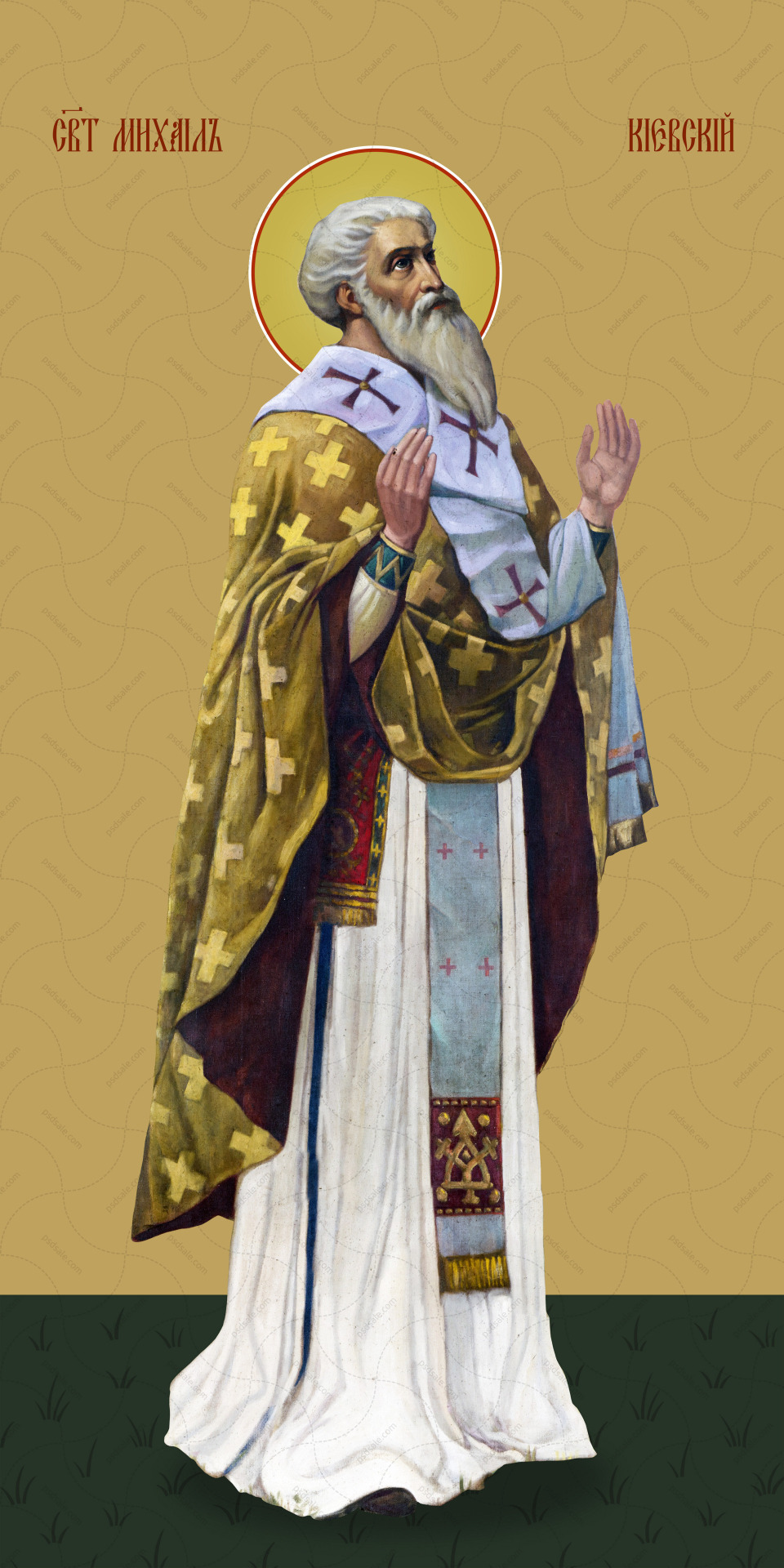
Based on certain Russian sources, Saint Michael is remembered as the first Metropolitan of Kiev and all Russia (988-992). He began his missionary work in Kiev, Suzdal, Novgorod, and Rostov, as well as in other cities. He built the first wooden church of the Dormition of the Theotokos at Rostov, and installed Theodore the Greek there as bishop.
The largest church in Kiev was the one dedicated to the Dormition of the Most Holy Theotokos, which was adorned with icons, crosses and Church utensils, brought from Korsun by Saint Michael. Saint Vladimir moved the coffin containing the relics of Saint Olga, Equal-of-the-Apostles († 969) to that church. When Saint Michael fell asleep in the Lord on June 15, 992, he was also buried there.(1)
The First Hierarch of the See of Kiev left behind a good memory. At the Synods held in the Holy Wisdom cathedrals of Kiev and Novgorod, he is forever described as "the first beginning of the hierarchy in Russia."
Saint Michael was distinguished for his wisdom, kindness and his strictness, and he was succeeded by Leo.
About the year 1103, the Saint's body was transferred to the katholikon in the Near Caves of Saint Anthony by Igoumen Theóktistos.(2)
Saint Michael is also commemorated on September 30 (the Transfer of his relics).
1 Saint Vladimir set aside a tithe of his income and property to pay for the church's construction and maintenance, which gave the church its popular name: 'the church of the Tithes."
2 Saint Theóktistos (August 5) later became Bishop of Chernigov. He reposed in 1123.
SAINT AUGUSTINE BISHOP OF HIPPO (430_ AND HIS MOTHER MONICA (387)
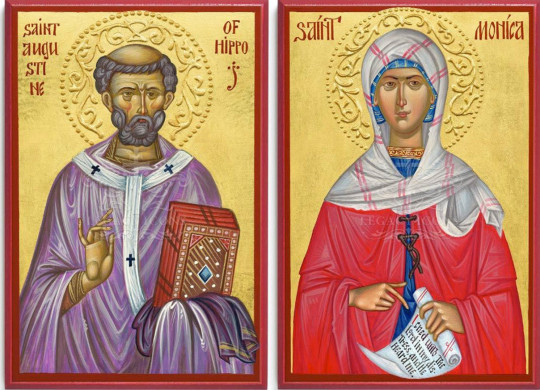
Saint Augustine was born in the city of Thagaste in northern Africa. He was raised by his mother, Saint Monica (May 4), and he received his education at Carthage. In the capacity of professor of rhetoric, Augustine arrived at Milan, Italy where Saint Ambrose (December 7) was bishop. Under the guidance of Saint Ambrose, Augustine studied the Holy Scriptures. The Word of God produced in his soul a radical crisis; he accepted holy Baptism, gave all his wealth to the poor and was tonsured as a monk.
In the year 391 Valerian, Bishop of Hippo, ordained Saint Augustine a priest, and in 395, appointed him vicar bishop of the see of Hippo. After the death of Bishop Valerian, Saint Augustine took his place.
During his 35 years as bishop, Saint Augustine wrote many works devoted to combating the Donatist, Manichaean and Pelagian heresies.
Saint Augustine wrote many works (according to his student and biographer Possidias, the number approached 1030). Of his works the best known are: The City of God (De civitate Dei), The Confessions, 17 Books against the Pelagians and Handbook of Christian Knowledge (The Enchiridion). Saint Augustine was concerned above all else that his writings be intelligent and edifying. “It is better,” he said, “for them to condemn our grammar, than for people not to understand.” Saint Augustine died on August 28, 430.
The Orthodox Church commemorates Saint Augustine on June 15, while the West commemorates him on August 28.
The Saint's Holy Relics are located in the Roman Catholic church of Saint Peter Ciel D' Oro Pavia, Italy; and a piece of his relics is to be found in the Monastery of Saint Meletios of Oinoi Villion in Attica, Greece.
Source: Orthodox Church in America_OCA
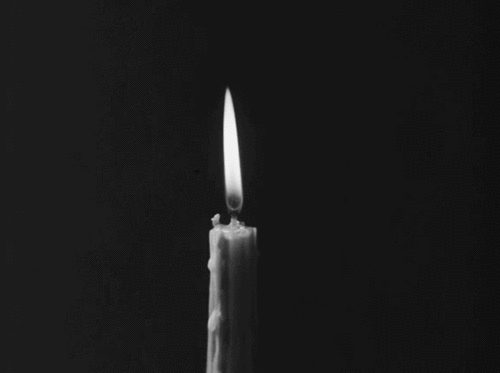

Romans 3:28-4:3
28 Therefore we conclude that a man is justified by faith apart from the deeds of the law. 29 Or is He the God of the Jews only? Is He not also the God of the Gentiles? Yes, of the Gentiles also, 30 since there is one God who will justify the circumcised by faith and the uncircumcised through faith. 31 Do we then make void the law through faith? Certainly not! On the contrary, we establish the law.
1 What then shall we say that Abraham our father has found according to the flesh? 2 For if Abraham was justified by works, he has something to boast about, but not before God. 3 For what does the Scripture say? "Abraham believed God, and it was accounted to him for righteousness."
Matthew 7:24-8:4
24 Therefore whoever hears these sayings of Mine, and does them, I will liken him to a wise man who built his house on the rock: 25 and the rain descended, the floods came, and the winds blew and beat on that house; and it did not fall, for it was founded on the rock. 26 But everyone who hears these sayings of Mine, and does not do them, will be like a foolish man who built his house on the sand: 27 and the rain descended, the floods came, and the winds blew and beat on that house; and it fell. And great was its fall. 28 And so it was, when Jesus had ended these sayings, that the people were astonished at His teaching, 29 for He taught them as one having authority, and not as the scribes.
1 When He had come down from the mountain, great multitudes followed Him. 2 And behold, a leper came and worshiped Him, saying, "Lord, if You are willing, You can make me clean." 3 Then Jesus put out His hand and touched him, saying, "I am willing; be cleansed." Immediately his leprosy was cleansed. 4 And Jesus said to him, "See that you tell no one; but go your way, show yourself to the
#orthodoxy#orthodoxchristianity#easternorthodoxchurch#originofchristianity#spirituality#holyscriptures#gospel#bible#wisdom#faith#saints
2 notes
·
View notes
Text
Today in Christian History
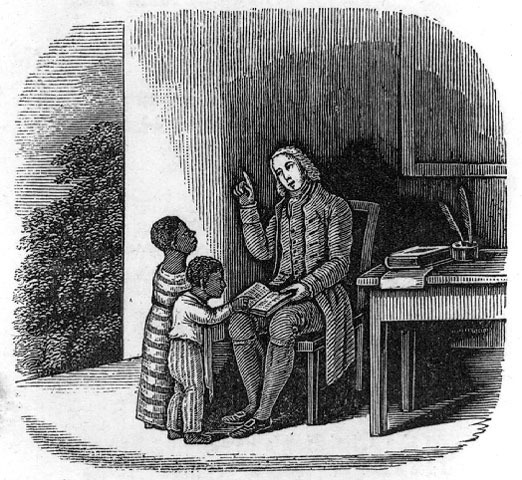
Today is Friday, May 3rd, 2024. It is the 124th day of the year in the Gregorian calendar; Because it is a leap year, 242 days remain until the end of the year.
321: Emperor Constantine the Great writes to his representative in North Africa, saying persecution of the Donatists (a Christian sect) must stop.
845: Rothad, bishop of Soissons consecrates Hincmar as Archbishop of Rheims. Hincmar will spend his life in battles to hold his position and in clashes with clergymen and kings to keep the church free of corruption and tyranny—at which he will fail.
1074: Death of Theodosius, a founder of the Kiev Pechersk Lavra (Monastery of the Kiev Caves). With Anthony of the Caves, he had introduced monasticism to Russia.
1679: Assassination of James Sharpe, Archbishop of St Andrew's, on Magus Moor. At one time a Presbyterian and Covenanter, he had joined the Church of England for the sake of advancement and had been made an archbishop. He had proceeded to brutally persecute his former brethren until at last, on this day, a band of Covenanters surround him and stab him to death to end his cruelty.
1784: Death in Philadelphia of Anthony Benezet (pictured above), a Quaker philanthropist and abolitionist.
1829: Nineteen-year-old Andrew Bonar, who will later become an influential minister in the Free Church of Scotland, notes in his journal that he is still out of Christ.
1831: Death of Elizabeth Hervey from dysentery before she could begin mission work in India.
1862: Death in New York City of Nathan Bangs, a Methodist minister and theologian, who had authored many books, including a massive history of Methodism in America. He had also been a successful Methodist publisher.
1878: Death in Winchester of William Whiting, master of Winchester College Choristers’ School. He had written the hymn “Eternal Father, Strong to Save” when one of his students sailed for America in 1860. Later writers added stanzas for submariners, airmen, and other branches of the military.
1989: Five-thousand Dani tribe members in Irian Jaya (Western New Guinea) gather for a two-day pig feast to celebrate the completion and distribution of a Dani-language New Testament.
6 notes
·
View notes
Text

What did Roman Empire pagan soldiers think of fighting under Constantine and Christianity?
Probably not very much.
The Roman military was a world of its own. More than today, soldiers had their very identity shaped by the institution and people they served. Upon enlisting, they swore allegiance to the emperor and received new names as his servants — Valerius during the tetrarchy and Flavius under Constantine. Those who didn’t speak Latin were pushed to acquire a basic grasp of it, pretty much like the French Foreign Legion of today. Starting from the late republican period, Roman soldiers were accustomed to receiving salaries, booty and pensions from their commanders, not the state in an abstract sense. Under the empire, loyalty often lay with the emperor, as long as he was perceived as strong.
In that frame, Constantine never lost the faith of his men thanks to his talents, accomplishments and image. It surely helped that he was Constantius Chlorus’ son, but dynastic feelings were not so strong in the 4th c. What really mattered was that he was a victorious imperator, with plenty of experience both before and after his ascension. His CV included wars against, and victories over, foreigners (Franks, Goths, Alamanni) and rival emperors (Maxentius, Licinius) alike. That kept soldiers satisfied and himself secure on the throne. Besides, Constantine took care to associate his military exploits with the Christian God. On the contrary, his sons failed to live up to his legacy and had to face claims by men like Magnus Magnentius and Julian.
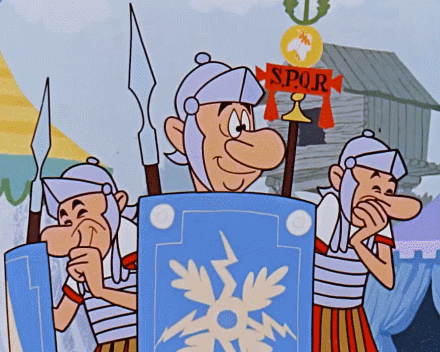
Another thing to consider is the role of religion in the then Roman military. In general, early Christianity wasn’t unanimously for or against military service, hence a decent minority of soliders were Christians even before Constantine. In the late 3rd c., you could find Christians like St. Marcellus holding even the rank of centurion. The statesman Cassius Dio is reported to have spoken of Christians in the comitatus of all four original tetrarchs. Cases of individual disobedience cannot be excluded, of course, but the military was, above all, a state mechanism. Under Diocletian, they persecuted Christians; under Constantine, they fought the Donatists and may have even destroyed the Asclepieion at Aegae, Cilicia.
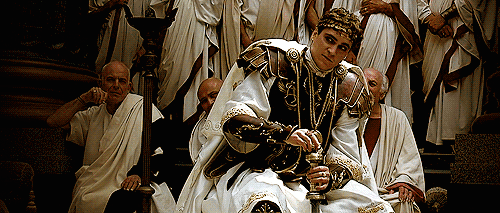
On his part, Constantine didn’t adopt Christianity the way most people after his time imagine(d). There was a long, gradual process, for the most part inscribed into the norms of late antiquity. Nomenclature and visual language were preserved to a considerable extent. Separate Christian and non-Christian prayers are reported to have been taking place at the same time. At some point in the 320s, a group of veterans greeted Constantine with the traditional “May the gods preserve you for us” salute. Two elite army units, Diocletian’s Jovians and Maximian’s Herculians, were not rebranded, although their names recalled the gods Jupiter and Hercules whom the late tetrarchs associated themselves with.
With the benefit of hindsight, we now know that the dynamics of that complex situation ended up favouring Christianity — if anything, all of Constantine’s successors were Christians except for Julian. That, however, should not be taken out of context. Few have a panoramic view of their time or the acumen to predict the future, and the provincials who made up the bulk of the late Roman military were not among them. Even if they were, though, they may not have had particularly strong feelings about any potential outcome. At the same time, various (quasi-)henotheistic traditions like the cult of Sol Invictus and Mithraism were around. The period was transitional, hence quite fluid.
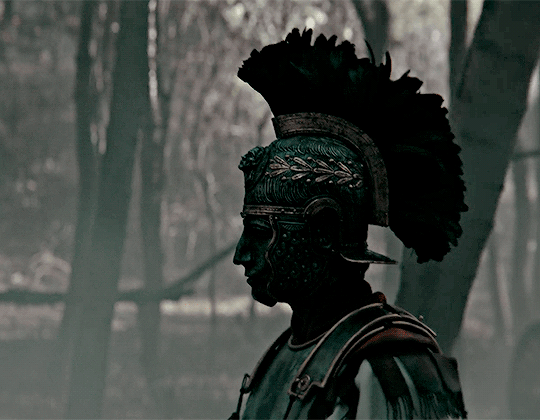
#kemetic dreams#european#europeans#western europe#christianity#roman military#henotheistic traditions#cult of sol invictus#mithraism#christians#constantine
10 notes
·
View notes
Text
Once I finish Ward and finish Umineko and finish Ende’s The Neverending Story and finish The Donatist Church in an Apocalpytic Age and finish Wolfe’s The Sword of the Lictor and finish Borges’ Labrynths and finish Vance’s Tales of the Dying Earth and finish Sade’s 120 Days of Sodom and Other Writings and finish Vandermeer’s The Strange Bird and finish MacGregor’s Henry Darger In the Realms of the Unreal and finish my thesis and finish my phd applications the wedding is BACK ON
8 notes
·
View notes
Text
Imagine hetalia characters having a parent-like relationship with their first leader
Like a very young france listening at night near a fire to clovis's stories about his grand-father mérovée.
or greece being physically 8 year old and arguing with constantine I about the gestion of the donatist crisis
A small Iran being a little shit acting all smug in front of lydia and then hiding behind cyrus the great before he gets caught
13 notes
·
View notes
Text
tag 9 people to get to know better
tagged by @burn-throughout-eternity
3 ships: Wolfspider, ..., (hm, there must be others), ..., uhhh griddlehark and rosemary? Saying you "ship" a canonical pairing seems like a misuse of the term but they both have ship names so I guess they work
First ever ship: If I try to seriously answer this then you'll have to read several pages of analysis of the term "ship" and what it does and doesn't apply to. None of which will be at all accurate for anyone who actually engages in fandom. So to simplify things lets just say rosemary.
Last song: "Tripoli" by Pinback. Its a rainy day, kind of suits the mood.
Last movie: My local arthouse theater was showing The Holy Mountain, saw it on a whim. It's pretty good. Certainly a few very memorable scenes. I will say that while I'm not a fan of the "dude how HIGH do you have to even BE etc etc" response to weird art, I probably was not in the intended headspace to fully appreciate it.
Currently reading: Oh lord. Okay gonna limit this to what I've actually picked up the past week. I've gotten to the second chapter of Umineko, I'm on 9.4 of Ward, I'm still working my way through "The Donatist Church in an Apocalyptic Age," I've just finished "Sword of the Lictor" in the Book of the New Sun series and am starting "Citadel of the Autarch," I'm making good progress on Borges' "Labrynths," and I've just started a book on Henry Darger that is way too psychoanalytical for me to take as a good piece of scholarship but is nonetheless interesting to read through. Oh and a bunch of the scholarship on Hardwig's "Duty to Die" argument and its various counters.
I probably need to sit down and just finish one of these. I'm not gonna though
Currently watching: I've been watching JJBA on and off for a bit, currently in early part 4.
Currently consuming: My third drink from the same teabag.
Currently craving: Lentils over rice and beans.
Tagging: @lakesbian @artbyblastweave @glowspider @ball-lightning @greatwyrmgold @yugonostalgia2019 @n0brainjustvibes @selamat-linting @theamberarchive (ignore if you're not interested and if you are interested but weren't tagged consider yourself tagged!)
3 notes
·
View notes
Text
When Donatists stripped a Catholic bishop naked, hauled him to the top of a tower and flung him into a pile of excrement, or tied a necklace of dead dogs around the neck of another, or pulled out the tongue of a third, and cut off his right hand, they were behaving in a manner that might have appeared calculated to baffle the average Roman bureaucrat. That differences of doctrine might divide the Christian people was a realisation that Constantine had fast had to come to terms with; but it was not doctrine that divided them in Africa. The hatred ran much deeper than that. Donatists who seized a church from Catholics would make sure to paint its walls white, scrub its floors with salt and wash its furnishings. Only in this manner, they believed, could the building be cleansed of contamination: the contamination of opponents who had compromised with the world.
What was the surest way to plant anew the Garden of Eden on earth? Was it, as the Donatists argued, to raise a wall against the clutching of briars and nettles, and to tend only those narrow flower beds that were manifestly clear of weeds? Or was it, as their opponents insisted, to attempt the planting of the whole world with seeds?
Dominion by Tom Holland
0 notes
Note
If I may, I’d like to know your thoughts on this excerpt I posted:
Indeed, without any implied Donatism, the identification of hierarchal and administrative institutions with “the Church” is not valid. The Church is Christ as he is present to and in Christians, while the institution can be called the Church by analogy, and only rightly so if the institution is manifesting the reality that is the Church. If it is not, if it teaches war and aids oppression, if it denies Christ in every way, then we call the institution “Church” falsely, and we must be careful that we do not use the sacraments to justify acceptance of and submission to an institution’s authoritarianism, discrimination, and warmongering.
The author is Eastern Orthodox, but this understanding of the Church sounds to me like the Protestant view. I don’t think that was their intention.
I hope to ask my parish priest about this same excerpt but I’d like to know your thoughts.
That's kind of the Protestant view; the classical Protestant view is that the Church was manifested by bodies of believers rightly preaching the Word and duly administering the Sacraments (some also add rightly administering discipline, and a few removed administration of the Sacraments).
As for the quote, the author can say he's not a Donatist, but, having read his article in full, yeah, he's at the very least Donatist-leaning. I also note he doesn't cite much in the way of Orthodox theologians in defence of this position.
5 notes
·
View notes
Text
Saints&Reading: Monday, March 25, 2014
march 12_march25
SAINT GREGORY THE DIALOGIST, POPE OF ROME (604)
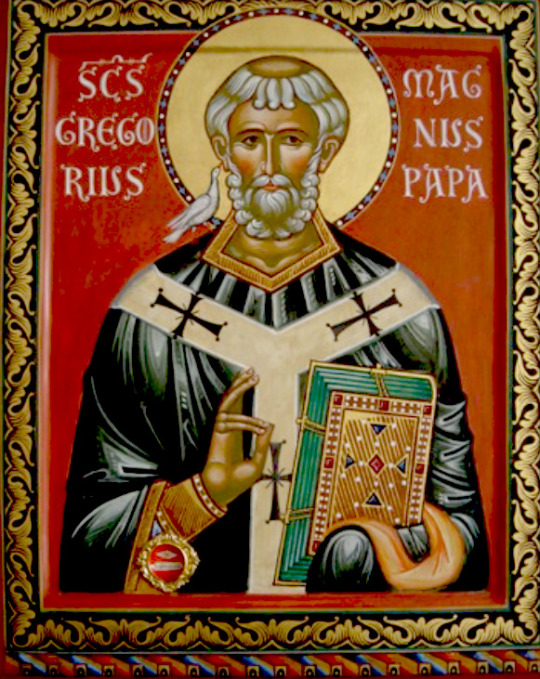
Saint Gregory the Dialogist, Pope of Rome, was born in Rome around the year 540. His grandfather was Pope Felix, and his mother Sylvia (November 4) and aunts Tarsilla and Emiliana were also numbered among the saints by the Roman Church. Having received a most excellent secular education, he attained high government positions.
Leading a God-pleasing life, he yearned for monasticism with all his soul. After the death of his father, Saint Gregory used his inheritance to establish six monasteries. At Rome he founded a monastery dedicated to the holy Apostle Andrew the First-Called, where he received monastic tonsure. Later, on a commission of Pope Pelagius II, Saint Gregory lived for a while in Constantinople. There he wrote his Commentary on the Book of Job.
After the death of Pope Pelagius, Saint Gregory was chosen to the Roman See. For seven months he would not consent to accept this service, considering himself unworthy. He finally accepted consecration only after the persistent entreaties of the clergy and flock.
Wisely leading the Church, Saint Gregory worked tirelessly in propagating the Word of God. Saint Gregory compiled the Liturgy of the Presanctified Gifts in the Latin language, which before him was known only in the verbal tradition. Affirmed by the Sixth Ecumenical Council, this liturgical service was accepted by all the Orthodox Church.
He zealously struggled against the Donatist heresy; he also converted the inhabitants of Brittany, pagans and Goths, who had been adhering to the Arian heresy, to the True Faith.
Saint Gregory has left behind numerous written works. After the appearance of his book, DIALOGUES CONCERNING THE LIFE AND MIRACLES OF THE ITALIAN FATHERS (DIALOGI DE VITA ET MIRACULIS PATRUM ITALIORUM), the saint was called “Dialogus.” His PASTORAL RULE (or LIBER REGULAE PASTORALIS) was well-known. In this work, Saint Gregory describes the model of the true pastor. His letters (848), dealing with moral guidance, have also survived.
Saint Gregory headed the Church for thirteen years, ministering to all the needs of his flock. He was characterized by an extraordinary love of poverty, for which he was granted a vision of the Lord Himself.
As he is known, Pope Saint Gregory the Great died in the year 604, and his relics rest in the cathedral of the holy Apostle Peter in the Vatican.
VENERABLE SYMEON, THE NEW THEOLOGIAN (1022)
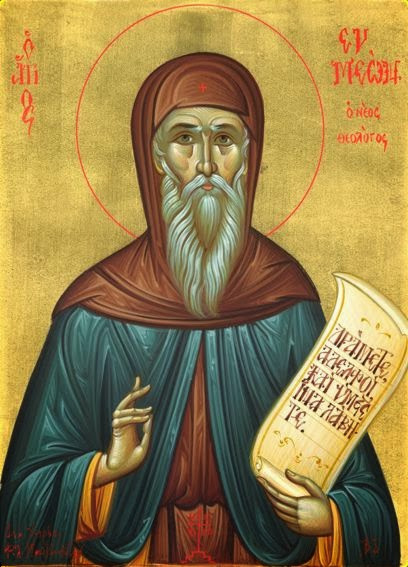
Saint Simeon the New Theologian was born in the year 949 in the city of Galatea (Paphlagonia), and he was educated at Constantinople. His father prepared him for a career at court, and for a certain while the youth occupied a high position at the imperial court. When he was fourteen, he met the renowned Elder Simeon the Pious at the Studion Monastery, who would be a major influence in his spiritual development. He remained in the world for several years preparing himself for the monastic life under the Elder’s guidance, and finally entered the monastery at the age of twenty-seven.
Saint Simeon the Pious recommended to the young man the writings of Saint Mark the Ascetic (March 5) and other spiritual writers. He read these books attentively and tried to put into practice what he read. Three points made by Saint Mark in his work “On the Spiritual Law” (see Vol. I of the English Philokalia) particularly impressed him. First, you should listen to your conscience and do what it tells you if you wish your soul to be healed (Philokalia, p. 115). Second, only by fulfilling the commandments can one obtain the activity of the Holy Spirit. Thirdly, one who prays only with the body and without spiritual knowledge is like the blind man who cried out, “Son of David, have mercy upon me” (Luke 18:38) (Philokalia, p. 111). When the blind man received his sight, however, he called Christ the Son of God (John 9:38).
Saint Simeon was wounded with a love for spiritual beauty, and tried to acquire it. In addition to the Rule given him by his Elder, his conscience told him to add a few more Psalms and prostrations, and to repeat constantly, “Lord Jesus Christ, have mercy upon me.” Naturally, he heeded his conscience.
During the day, he cared for the needs of people living in the palace of Patricius. At night, his prayers grew longer and he remained praying until midnight. Once, as he was praying in this way, a most brilliant divine radiance descended upon him and filled the room. He saw nothing but light all around him, and he was not even aware of the ground beneath his feet.
It seemed to him that he himself became light. Then his mind rose upward to the heavens, and he saw a second light brighter than the light which surrounded him. Then, on the edge of this second light, he seemed to see Saint Simeon the Pious, who had given him Saint Mark the Ascetic to read.
Seven years after this vision, Saint Simeon entered the monastery. There he increased his fasting and vigilance, and learned to renounce his own will.
The Enemy of our salvation stirred up the brethren of the monastery against Saint Simeon, who was indifferent to the praises or reproaches of others. Because of the increased discontent in the monastery, Saint Simeon was sent to the Monastery of Saint Mamas in Constantinople.
There he was tonsured into the monastic schema, and increased his spiritual struggles. He attained to a high spiritual level, and increased his knowledge of spiritual things through reading the Holy Scriptures and the writings of the Fathers, as well as in conversation with holy Elders.
Around the year 980, Saint Simeon was made igumen of the monastery of Saint Mamas and continued in this office for twenty-five years. He repaired and restored the monastery, which had suffered from neglect, and also brought order to the life of the monks.
The strict monastic discipline, for which Saint Simeon strove, led to great dissatisfaction among the brethren. Once, after Liturgy, some of the monks attacked him and nearly killed him. When the Patriarch of Constantinople expelled them from the monastery and wanted to hand them over to the civil authorities, Saint Simeon asked that they be treated with leniency and be permitted to live in the world.
About the year 1005, Saint Simeon resigned his position as igumen in favor of Arsenius, while he himself settled near the monastery in peace. There he composed his theological works, portions of which appear in the Philokalia.
The chief theme of his works is the hidden activity of spiritual perfection, and the struggle against the passions and sinful thoughts. He wrote instructions for monks: “Theological and Practical Chapters,” “A Treatise on the Three Methods of Prayer,” (in Vol. IV of the English Philokalia) and “A Treatise on Faith.” Moreover, Saint Simeon was an outstanding church poet. He also wrote “Hymns of Divine Love,” about seventy poems filled with profound prayerful meditations.
The sublime teachings of Saint Simeon about the mysteries of mental prayer and spiritual struggle have earned him the title “the New Theologian.” These teachings were not the invention of Saint Simeon, but they had merely been forgotten over time.
Some of these teachings seemed unacceptable and strange to his contemporaries. This led to conflict with Constantinople’s church authorities, and Saint Simeon was banished from the city. He withdrew across the Bosphorus and settled in the ancient monastery of Saint Makrina.
The saint peacefully fell asleep in the Lord in the year 1021. During his life he received the gift of working miracles. Numerous miracles also took place after his death; one of them was the miraculous discovery of his icon.
His Life was written by his cell-attendant and disciple, Saint Nicetas Stethatos.
Since March 12 falls during Great Lent, Saint Simeon’s Feast is transferred to October 12.
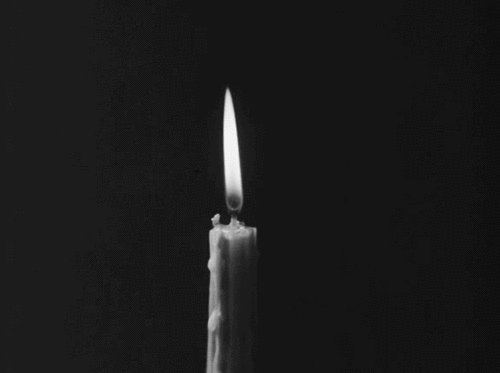
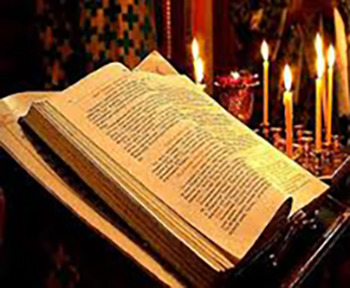
ISAIAH 4:2-5:7
2 In that day the Branch of the Lord shall be beautiful and glorious; And the fruit of the earth shall be excellent and appealing For those of Israel who have escaped. 3 And it shall come to pass that he who is left in Zion and remains in Jerusalem will be called holy—everyone who is recorded among Jerusalem's people. 4 When the Lord has washed away the filth of the daughters of Zion, and purged the blood of Jerusalem from her midst, by the spirit of judgment and by the spirit of burning, 5 then the Lord will create above every dwelling place of Mount Zion, and above her assemblies, a cloud and smoke by day and the shining of a flaming fire by night. For over all the glory, there will be a covering. 6 And there will be a tabernacle for shade in the daytime from the heat, a place of refuge, and a shelter from storm and rain.
1 Now let me sing to my Well-beloved A song of my Beloved regarding His vineyard: My Well-beloved has a vineyard On a fruitful hill. 2 He dug it up and cleared out its stones, And planted it with the choicest vine. He built a tower in its midst and also made a winepress in it. He expected it to bring forth good grapes, but it brought forth wild grapes. 3 “And now, O inhabitants of Jerusalem and men of Judah, Judge, please, between Me and My vineyard. 4 What more could have been done to My vineyard That I have not done in it? Why then, when I expected it to bring forth good grapes, Did it bring forth wild grapes? 5 And now, please let Me tell you what I will do to My vineyard: I will take away its hedge, and it shall be burned, And break down its wall, and it shall be trampled down. 6 I will lay it waste; It shall not be pruned or dug, but briers and thorns shall come
. I will also command the clouds That they rain no rain on it.” 7 For the vineyard of the Lord of hosts is the house of Israel, And the men of Judah are His pleasant plant. He looked for justice, but behold oppression; For righteousness, but behold, a cry for help.
GENESIS 3:21-4:7
21 Also for Adam and his wife the Lord God made tunics of skin, and clothed them. 22 Then the Lord God said, “Behold, the man has become like one of Us, to know good and evil. And now, lest he put out his hand and take also of the tree of life, and eat, and live forever”— 23 therefore the Lord God sent him out of the garden of Eden to till the ground from which he was taken. So He drove out the man; and He placed cherubim at the east of the garden of Eden, and a flaming sword which turned every way, to guard the way to the tree of life.
1 Now Adam knew Eve his wife, and she conceived and bore Cain, and said, “I have acquired a man from the Lord.” 2 Then she bore again, this time his brother Abel. Now Abel was a keeper of sheep, but Cain was a tiller of the ground. 3 And in the process of time it came to pass that Cain brought an offering of the fruit of the ground to the Lord. 4 Abel also brought of the firstborn of his flock and of their fat. And the Lord respected Abel and his offering, 5 but He did not respect Cain and his offering. And Cain was very angry, and his countenance fell. 6 So the Lord said to Cain, “Why are you angry? And why has your countenance fallen? 7 “If you do well, will you not be accepted? And if you do not do well, sin lies at the door. And its desire is for you, but you should rule over it.”
#orthodoxy#orthodoxchristianity#easternorthodoxchurch#originofchristianity#spirituality#holyscriptures#bible#wisdom#saints
4 notes
·
View notes
Text
#...so if I ever felt like performing sacraments I could just show up in Kentucky and tell everyone I'm a priest?#unsure if it works that way with Catholicism though.#actually that would be an interesting experiment. when the dead are raised I could check and see if anybody was married in the eyes of God#which would say a lot about organized religion!#assuming they let you talk to the other resurrected people or remember who they are or anything#judgement day would probably be busy and crowded but maybe I could find at least one couple#religion
i read something about this recently. catholics believe in ex opere operato, "from the work performed", which is to say the grace/efficacy of sacraments comes from the sacrament itself, as an instrument of god, and not from the person performing the sacrament. in antiquity there was a schism about this, where donatist christians believed that for sacraments to mean anything they had to come from a sufficiently worthy and holy priest. the orthodox catholic opinion came down on the other side, because frankly if it didn't people would be in constant doubt about the validity of their baptisms and so on.
idk if this would extend to someone actively lying about their priesthood tbh it just kinda reminded me

This is how 40k works
45K notes
·
View notes
Link
1 note
·
View note
Text
"Bacon’s theory of monstrosity and terror was carried into the middle of the seventeenth century by Thomas Edwards, who studied the heresies of revolutionary England. ... In his dedication he described his combat against the ‘‘three bodied Monster Geryon, and the three headed Cerberus,’’ and ‘‘that Hydra also, ready to rise up in their place.’’ At the beginning of volume 2 he noted that ‘‘whilest I was writng this Reply, had even finished it, striking off this three headed Cerberus, new heads of that monstrous Hydra of Sectarism sprung up.’’ The heads of Bacon’s hydra lunge out of Edwards’s work, in the shape of religious radicals, indigenous Americans, Africans, commoners, sailors, and women.
The ‘‘Anabaptists’’ denounced by Bacon had multiplied during the subsequent generation, posing a revolutionary challenge during the 1640s and 1650s and setting men such as Edwards to work. Some of these heretics, Edwards explained, favored communism, claiming ‘‘that all men are Commoners by right’’ and that ‘‘all the earth is the Saints, and there ought to be a community of goods, and the Saints should share in the Lands and Estates of Gentlemen, and rich men.’’ An associated belief was the millenarian notion that Christ would visibly reign for a thousand years, putting down all oppressors, while Christians lived in worldly delight (though no one seemed to know when to begin the calculation of the millennium!). Many of the Anabaptists were also antinomians, believing that the ‘‘moral law [was] of no use at all to believers,’’ that the Old Testament was not binding on God’s chosen, and that faith and conscience took priority over good works and lawfully constituted authority. Indeed, some held that it was ‘‘unlawful for a Christian to be a magistrate,’’ while others felt that secular government itself was an oppression. Skepticism toward rules, ordinances, and rituals abounded, as did revelations and visions. Some religious radicals asserted that the ‘‘body of the common people is the Earthly Sovereign.’’
Like Bacon, Edwards adopted an international perspective on his subject, remarking that many of the heresies had been promoted by persons ‘‘cast out of other Countries.’’ He condemned the numerous spiritual extremists of New England [and compared them to Hannibal's army - many nations under arms.] The core of Hannibal’s army was African, and indeed the continent to which English slave traders were flocking in the 1640s was never far from Edwards’s mind. Many of the heresies of seventeenth-century England seemed to Edwards to be variations of the North African heresies of early Christianity, such as those of the Donatists. He wrote, ‘‘Error, if way be given to it, knowes no bounds, it is bottomlesse, no man could say how farre England would goe, but like Africa it would be bringing forth Monsters every day.’
When Edwards singled out for particular scorn those monsters he described as ‘‘hairy, rough, wilde red men,’’ Caliban reappeared in revolutionary England, as did native America more generally. In much the same vein, the editor of an English newsbook reported in April 1649 the sayings of two ‘‘savage Indians’’ at the French court:
[One Indian] observed two things which he stood amazed at. First, that so many gallant men which seemed to have stout and generous Spirits, should all stand bare, and be subject to the will and pleasure of a Child [Louis XIV]. Secondly, that some in the City were clad in very rich and costly Apparel, and others so extream poor, that they were ready to famish for hunger; that he conceived them to be all equaliz’d in the ballance of Nature, and not one to be exalted above another.
The editor denounced the natives as ‘‘two Heathen Levellers.’’ In the Americas, fear of Indian attacks and slave revolt went hand in hand with fear of ‘‘familisme [the doctrine of the sixteenth-century sect called the Family of Love], Anabaptisme, or Antinomianisme,’’ and the many-headed hydra summarized the threat in a powerful rhetorical figure. Edwards wrote that John Calvin, who attacked popish heresy as well as the heresies of libertines and Anabaptists, was a ‘‘Christian Hercules, overcoming so many monsters.’’
- Peter Linebaugh and Marcus Rediker, The Many-Headed Hydra: Sailors, Slaves, Commoners, and the Hidden History of the Revolutionary Atlantic. Boston: Beacon Press, 2000. p. 66-69
#many-headed hydra#reading 2024#revolutionary atlantic#anabaptists#kevellers#settler colonialism#seventeenth century#indigenous peoples#academic quote#millenarism
0 notes
Text
0 notes
Text
Yes, this Council is also one of the major events in the long drift between Judaism and Christianity. At the time, most Jewish believers constituted their own communities, accepted by neither Christian communities nor Jewish communities. Daniel Boyarin gives an excellent explanation of this in The Jewish Gospel, which I didn't reference here because I was writing a silly post about blorbos from my history class.
The Nicene creed does very specifically excludes those contemporary communities, which viewed Jesus as human and not divine. Boyarin raises the question: Who gets to define who is a Jew? It's a troubling question throughout history.
And I agree that the separation of Judaism and Christianity has devastating reverberations through history, at the hands of Christians. But I fail to see any reason the Council would have invited Ebonites? It also didn't invite Donatist bishops. The Roman Catholic conclave doesn't invite Lutherans. These are simply different communities and different institutions.
I don't really accept the premise that I must ALWAYS list the ways historical figures were problematic. These men also didn't ordain women as bishops and wouldn't accept me, a queer trans person, as a deacon. I'm an anarchist and Constantine is an EMPEROR. I don't really need them to accept me in order for them to be my blorbos from history OR to study them to learn how the Holy Spirit forms the church.
I'm OBSESSED with the Council of Nicaea. It's spring of 325. Christianity has been legal for 12 years. Constantine wants a unified religion for the Empire but the church has already schismed three different ways in the 3 centuries since the death of Christ, and legalization ITSELF causes a schism. They don't even all agree that being a legal religion is good. Now they're schisming about the nature of Christ. He can't persecute them into agreeing and Lord knows he's tried.
So Constantine calls all the bishops to his fucking summer resort, on the imperial dime. 280-318 bishops are going to argue about if the Logos (Christ) was "eternally begotten" or the first creation of God. Santa Claus is going to punch Arius in the face for saying the Logos was created. While we're here, let's set a date for Easter, which we also never pinned down. And we have to decide if eunuchs can be ordained because EVERYTHING HAS ALWAYS BEEN THIS WAY.
I've been to church conferences. I lose it every time I think about this. Bishops coming into Nicaea tired from the road (travel's a curse). Rural bishops coming to the seat of power for the first time. There's one guy who doesn't understand Robert's Rules and another guy who won't stop bringing up points of order. Someone's sleeping through all the speeches; he's just happy to be on vacation at the emperor's summer resort. The decision made here will form the closest thing Christianity has to a universal declaration of faith for the next 1700 years and it's going to take THREE MONTHS and we have to do it again in 6 years
I'm fancasting my Nicaea movie as we speak
#discourse#christian history#council of Nicaea#i would really hope that my post where i made fun of bishops for sleeping through meetings and just being in vacation#would not sound overly aggrandizing but what can one do
3K notes
·
View notes
Text
SAINT OF THE DAY (June 4)

The church remembers St. Optatus on June 4.
As a convert from paganism, he is best known for his opposition to the heresy of Donatism and his six treatises composed against them.
One of them, against Parmenian, is still extant and was mentioned by St. Jerome in his 'De Viris Illustribus' as having been composed in six books.
The treatise stresses the need for unity and is conciliatory in tone, but it criticizes Donatist teachings on Baptism.
It stresses that the Church cannot be limited to Africa but is “catholic.”
Optatus was highly praised by such contemporaries as Augustine and Fulgentius of Ruspe.
He died in 387 A.D. as Bishop of Milevis, Numidia, in Africa.
0 notes